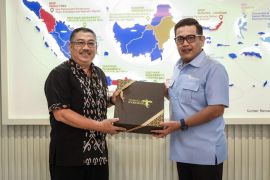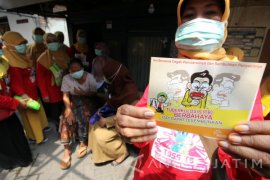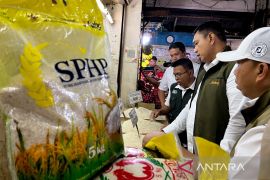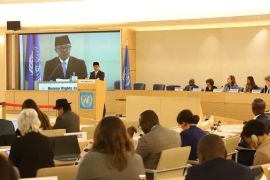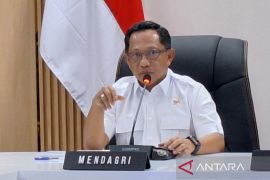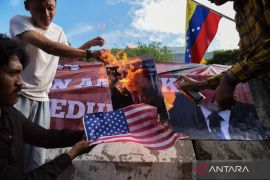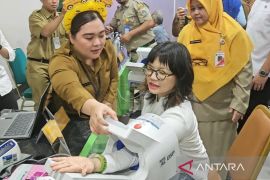Indonesia objected to an article in the treaty which state arm producing countries have the right to assess the implementation of human rights protection in buying countries, Member of House Commission I handling international relations, Muhammad NadJakarta (ANTARA News) - Indonesian Parliament objects to ratifying the Arms Trade Treaty (ATT) during the final United Nations Conference on ATT at the UN Headquarters in New York on Tuesday, a legislator has said.
Member of House Commission I handling international relations, Muhammad Nadjib, said on a press release here on Tuesday that Indonesia objected to an article in the treaty which state arm producing countries have the right to assess the implementation of human rights protection in buying countries.
"Those article is highly subjective and is made in favor of the political interest of big countries. We also believe arm producing countries conduct double standard in implementing the treaty," he said.
Other article which Indonesian parliament members feel objected to is the presence of a clause about arm producing countries can embargo the shipping of ammunition and supporting components to Indonesia if the latter is considered to have violate human rights.
"Such embargo will paralyze our weaponry system which we have bought in a high price," Nadjib added.
Earlier in the day Secretary-General Ban Ki-moon called on participants of the United Nations Final Conference on the Arms Trade Treaty (ATT) to conclude work by 28 March on a comprehensive instrument that would establish standards for international trade in conventional weapons.
"You are not here to initiate new negotiations. You are here to strengthen and conclude the work that has been done in earnest since the beginning of the ATT process in 2006," Ban told representatives from 193 Member States in his opening remarks to the conference in New York today.
He added that now is the time for the focus and political will to negotiate the final details and arrive at a consensus outcome during the nine-day conference. "That is the clear message of the General Assembly when it decided that this is the Final United Nations Conference on the ATT," he said.
The last negotiations on the ATT ended in July of last year without agreement. Disappointed, Mr. Ban described it as a "setback" but also noted that States had reached considerable common ground that can be built on.
Ban said an effective and strong ATT will put on notice warlords, pirates, human rights abusers, organized criminals, terrorists and gun runners. The treaty, he added, will also require exporting countries to assess the risk that weapons will be used to commit grave violations of international humanitarian law or even fuel conflict.
According to the UN Office for Disarmament Affairs between 2000 and 2010 almost 800 humanitarian workers were killed in armed attacks and another 689 injured.
Some 2,000 representatives of Governments, international and regional organizations and civil society have gathered at UN Headquarters to take part in the negotiations and related events.
The process is overseen by Ambassador Peter Woolcott of Australia who took over today as president of the conference. (*)
Editor: Heru Purwanto
Copyright © ANTARA 2013
